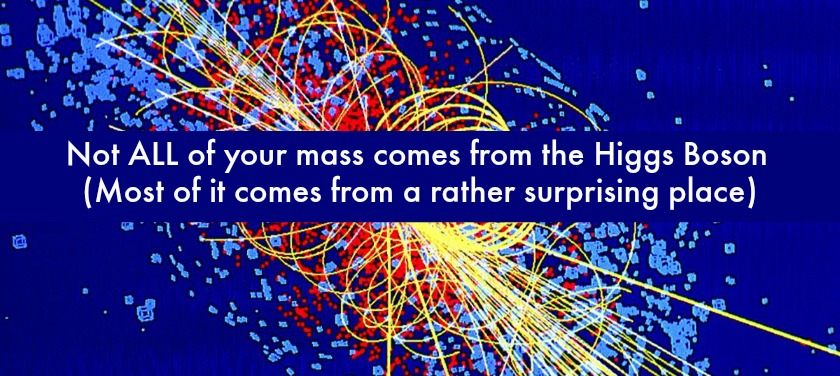
One of the most monumental finds of the 21st century is none other than the Higgs boson: the elusive particle that plays a fundamental role in granting mass to particles. However, the Higgs mechanism remains shrouded in misconceptions and falsehood (pretty much anything pertaining to the quantum world is), perhaps the most prominent misconception says that the Higgs and its corresponding field — called the Higgs field — is responsible for imparting mass on all of the particles that make up normal matter (since we haven’t pinned down the makeup of dark matter or dark energy, we can’t say that it plays a role with all matter. Plus, as a fun aside, this very fact makes that viral meme about ‘atoms making up everything’ flat out wrong.).
This Veritasium video explains why that conventional pop sci notion is wrong.
To summarize, the Higgs boson and the Higgs field work in cohorts to impart mass on ELEMENTARY particles (particles that can not be broken down any further, like electrons). It might seem like a semantical distinction, but it isn’t. The list of fundamental particles doesn’t include a number of other well-known, and populous particles, most notably, protons and neutrons.
So.. where does their mass come from then? It’s actually very complicated.
Quarks are extremely,mind-bogglingly small.. so small that they only account for approximately 1% of the overall mass of the protons and neutrons they comprise (meanwhile, the mass of, say, the electron merely accounts for 1/2000th of an atom’s mass). Instead of gaining their mass via the Higgs mechanism, they derive pretty much all of it through something called a gluon field. Gluons themselves are massless particles mostly containing sheer energy. As many of you know, thanks to E=mc2, energy and mass are two sides of the same coin.. The expression is just different. Therefore, some portion of visible matter didn’t come into being because of the Higgs boson. Rather, it’s essentially a manifestation of energy.
Moreover, virtual particles — virtual gluons and quarks, specifically — might even account for more than 80% of all traditional mass in the universe.
WATCH: “Your Mass is NOT From the Higgs Boson”
So, to summarize:
The Higgs mechanism is meant to account for the mass of everything, right? Well no, only the fundamental particles, which means that electrons derive their mass entirely from the Higgs interaction but protons and neutrons, made of quarks, do not.
See more videos from Veritasium here, or see a far more detailed discussion here.